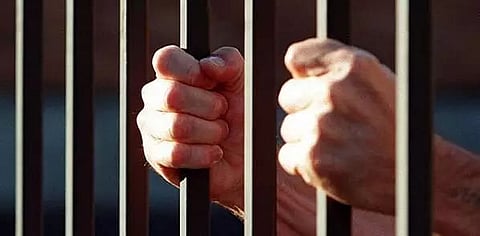
- Home
- Live Blog
- Breaking News
- Top Headlines
- Cities
- NE News
- Sentinel Media
- Sports
- Education
- Jobs

GUWAHATI: Nagaland has released 109 undertrials in keeping with Supreme Court's directions to all States and Union Territories to constitute their respective high-level panels to determine prisoners who could be released on parole for four to six weeks to prevent overcrowding in jails to help prevent the spread of coronavirus.
In Nagaland prisoners were released from 11 jails.
The state houses 537 prisoners. A committee was formed to carry out the SC's mandate.
The under trials released would be taken into custody if they try to threaten anybody who can be a witness or of any importance to the victim's case, informed the committee.
A few days ago, the Supreme Court had said that the Indian prisons are overcrowded, which strikes against the Centre's advice to maintain "social distancing."
"While the government of India advises that social distancing must be maintained to prevent the spread of the virus, the bitter truth is that our prisons are overcrowded, making it difficult for the prisoners to maintain social distancing," said a special bench headed by Chief Justice SA Bobde and Justice L Nageswara Rao, which was not part of the roster , that took up the hearing on the matter of "public importance relating to medical assistance to prisoners."
The top court observed that there are 1,339 prisons in the country, and approximately 4,66,084 inmates.
According to the National Crime Records Bureau, the occupancy rate of Indian prisons is 117.6%, with states such as Uttar Pradesh and Sikkim rate as high as 176.5% and 157.3% respectively.
"Like most other viral diseases, the susceptibility to COVID-19 is greater in overcrowded places, mass gatherings, etc. Studies indicate that contagious viruses such as coronavirus proliferate in closed spaces such as prisons. Studies also establish that prison inmates are highly prone to contagious viruses," observed the court.
The bench said: "The rate of ingress and egress in prisons is very high, especially since persons (accused, convicts, detenues etc.) are brought to the prisons on a daily basis."
The top court observed that several correctional officers and other prison staff also enter the prisons regularly, and so do visitors (kith and kin of prisoners) and lawyers.
"Therefore, there is a high risk of transmission of COVID-19 to the prison inmates. For the reasons mentioned above, our prisons can become fertile breeding grounds for incubation of coronavirus," added the court.